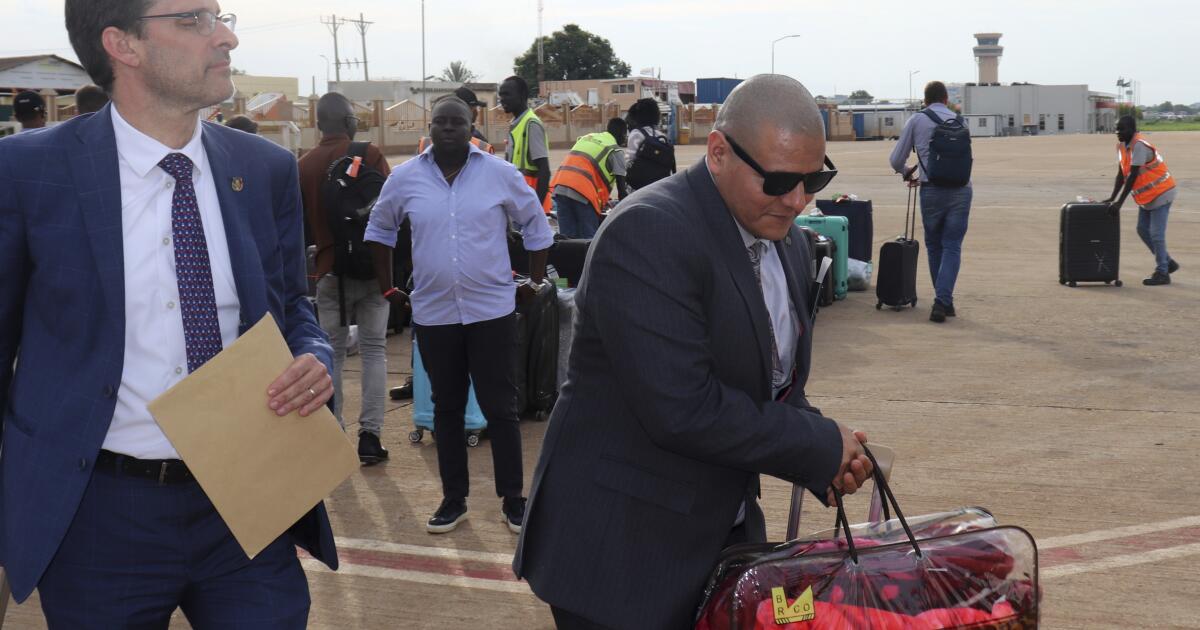Legal aid group sues to preemptively block U.S. from deporting a dozen Honduran children
A legal aid group has sued to preemptively block any efforts by the U.S. government to deport a dozen Honduran children, saying it had “credible” information that such plans were quietly in the works.
The Arizona-based Florence Immigrant & Refugee Rights Project, known as FIRRP, on Friday added Honduran children to a lawsuit filed last weekend that resulted in a judge temporarily blocking the deportation of dozens of migrant children to their native Guatemala.
In a statement, the organization said it had received reports that the U.S. government will “imminently move forward with a plan to illegally remove Honduran children in government custody as soon as this weekend, in direct violation of their right to seek protection in the United States and despite ongoing litigation that blocked similar attempted extra-legal removals for children from Guatemala.”
FIRRP did not immediately provide the Associated Press with details about what information it had received about the possible deportation of Honduran children. The amendment to the organization’s lawsuit is sealed in federal court. The Homeland Security Department did not immediately respond to email requests for comment Friday and Saturday.
Over Labor Day weekend, the Trump administration attempted to remove Guatemalan children who had come to the U.S. alone and were living in shelters or with foster care families in the U.S.
Advocates who represent migrant children in court filed lawsuits across the country seeking to stop the government from removing the children, and on Sunday a federal judge stepped in to order that the kids stay in the U.S. for at least two weeks.
Children began crossing the border alone in large numbers in 2014, peaking at 152,060 in the 2022 fiscal year. July’s arrest tally translates to an annual clip of 5,712 arrests, reflecting how illegal crossings have dropped to their lowest levels in six decades.
Guatemalans accounted for 32% of residents at government-run holding facilities last year, followed by Hondurans, Mexicans and Salvadorans. A 2008 law requires children to appear before an immigration judge with an opportunity to pursue asylum, unless they are from Canada and Mexico. The vast majority are released from shelters to parents, legal guardians or immediate family while their cases wind through court.
The lawsuit was amended to include 12 children from Honduras who have expressed to the Florence Project that they do not want to return to Honduras, as well as four additional children from Guatemala who have come into government custody in Arizona since the suit was initially filed last week.
Some children have parents who are already in the United States.
The lawsuit demands that the government allow the children their legal right to present their cases to an immigration judge, have access to legal counsel and be placed in the least restrictive setting that is in the best interest of the child.
Willingham writes for the Associated Press.

